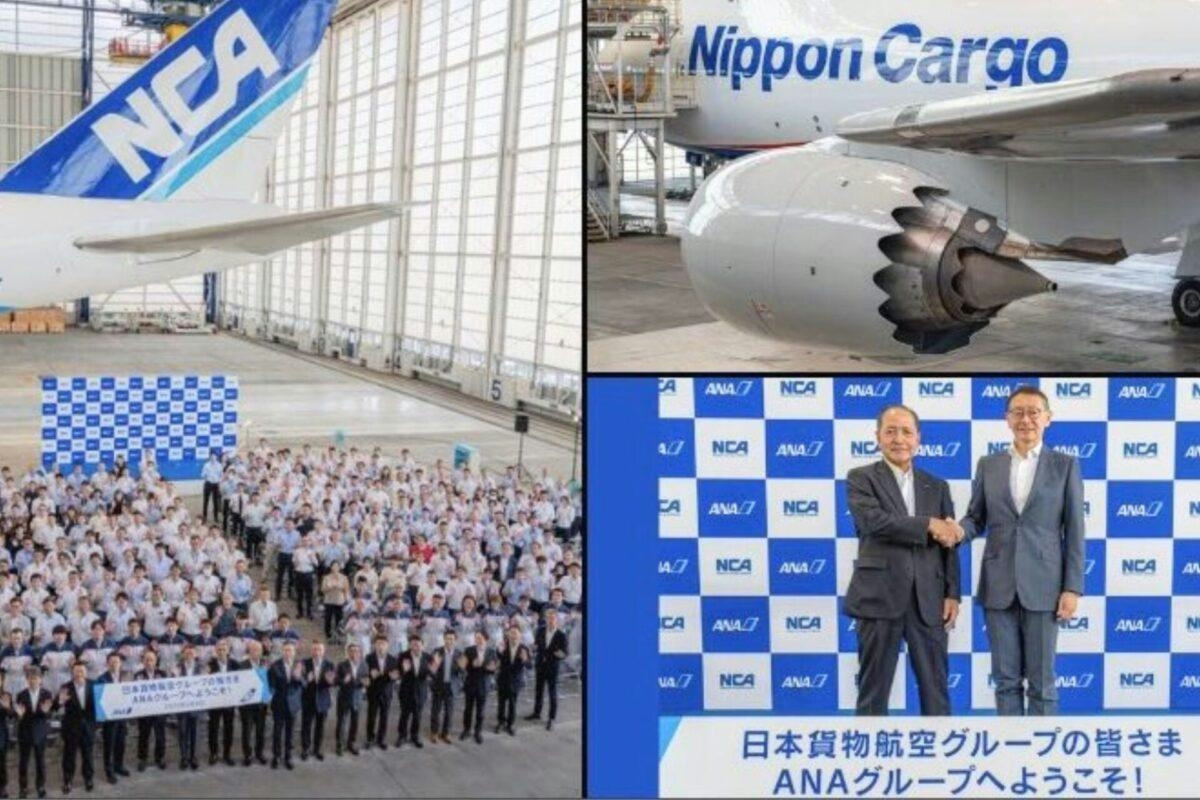AeroGenie — Seu Copiloto Inteligente.
Tendências
Categories
ANA Holdings completes acquisition of Nippon Cargo Airlines

ANA Holdings Finalizes Acquisition of Nippon Cargo Airlines
ANA Holdings (ANA HD) has officially completed its acquisition of Nippon Cargo Airlines (NCA) through a simplified share exchange with Nippon Yusen Kabushiki Kaisha, following regulatory approval granted on August 1. This transaction establishes NCA as a wholly owned subsidiary of the ANA Group, significantly expanding ANA’s cargo transport network and operational capabilities.
Expansion of Cargo Fleet and Network
The integration merges NCA’s fleet of eight Boeing 747-8 freighters with ANA’s existing six Boeing 767 and two Boeing 777 freighters. By combining NCA’s specialized expertise in handling special commodities and high-volume cargo with ANA’s extensive international passenger and cargo routes, the group aims to offer a more comprehensive and versatile service portfolio. This expanded network is expected to enhance transport connectivity between Japan, Asia, Europe, and the United States, reinforcing ANA’s status as Japan’s largest combination carrier and elevating its global ranking to 14th place in cargo transport weight.
Strategic Implications and Market Positioning
This acquisition is a strategic effort to improve ANA Group’s profitability and resilience by balancing revenues from both passenger and cargo operations, particularly in the face of market volatility. With planned expansions at Narita Airport, including new runways and increased capacity, ANA is positioning itself for sustainable long-term growth and a more prominent role as a critical logistics infrastructure provider supporting international trade and supply chains. Customers stand to benefit from enhanced supply chain solutions and more efficient cargo handling as NCA’s operations are fully integrated into the ANA Group.
Challenges and Market Dynamics
Despite the strategic advantages, the acquisition presents several challenges. The integration of NCA’s operations will require meticulous management to align systems and processes effectively. The cargo sector remains highly competitive, and increased labor costs associated with a larger workforce and operational complexity could affect profitability. These concerns have contributed to recent fluctuations in ANA Holdings’ share price, reflecting investor uncertainty regarding the acquisition’s long-term impact. Additionally, competitors may respond with strategic initiatives to counterbalance ANA’s expanded capabilities.
Financial consolidation of NCA’s balance sheet and income statement into ANA Group’s accounts is scheduled to commence in the second quarter of the 2025 fiscal year. As ANA navigates the complexities of integration, its ability to manage operational challenges and adapt to evolving market conditions will be closely monitored by investors and industry analysts.

Emirates Unveils Cabin Design for New Boeing 777X

Eighteen Years On, the Airbus A380 Remains Central to a $34 Billion Airline

How a boom in luxury airline seats is slowing down jet deliveries

Navitaire Outage Attributed to Planned Maintenance

DigiYatra Debuts Outside Aviation at India AI Impact Summit

Vietnam Orders Strengthen Boeing’s Commercial Outlook

Airbus Signals Uncertainty Over Future A400M Orders

JobsOhio Awards $2 Million Grant to Hartzell Propeller for Innovation Center

Collins Aerospace Tests Sidekick Autonomy Software on YFQ-42A for U.S. Air Force CCA Program

How the Airbus A350-1000 Compares to the Boeing 777
